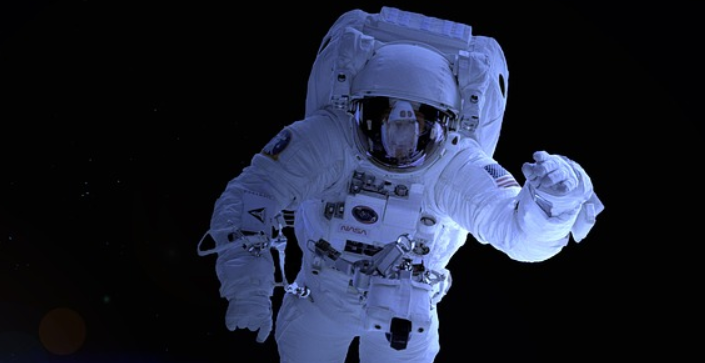Science News Roundup: Fetus brains unharmed by non-severe COVID-19; cancer patients get benefit from mRNA vaccines; NASA astronauts replace faulty space station antenna during spacewalk and more
U.S. officials said last month that an anti-satellite missile test carried out by Russia had generated a debris field in low-Earth orbit that endangered the ISS and would pose a hazard to space activities for years. Hot little planet as dense as iron zips around red dwarf star Scientists have spotted one of the smallest planets ever discovered outside our solar system, a scorching-hot world a bit larger than Mars and just about as dense as pure iron zooming around its home star every eight hours.

Following is a summary of current science news briefs.
Fetus brains unharmed by non-severe COVID-19; cancer patients get benefit from mRNA vaccines
The following is a summary of some recent studies on COVID-19. They include research that warrants further study to corroborate the findings and that has yet to be certified by peer review. The fetus brain appears unharmed by mild-to-moderate COVID-19
Armored dinosaur wielded a tail resembling an Aztec war club
More than half a millennium ago, Aztec warriors brandished a weapon called a macuahuitl, a wooden club with jagged obsidian blades embedded on its sides, to inflict gruesome wounds on enemies in close combat. A newly identified armored dinosaur that inhabited the Patagonian region of Chile did much the same thing to ward off predators about 74 million years ago with a tail resembling a macuahuitl, scientists said on Wednesday.
NASA astronauts replace faulty space station antenna during spacewalk
Two NASA astronauts completed a 6-1/2 hour spacewalk on Thursday to replace a faulty antenna on the International Space Station, a mission NASA said carried slightly higher risk posed by orbital debris left from a Russian missile test weeks ago. Astronauts Thomas Marshburn and Kayla Barron exited an airlock of the orbiting research lab some 250 miles (400 km) above Earth to begin their work at 6:15 a.m. Eastern time (1115 GMT), an hour ahead of schedule.
International Space Station swerves to dodge space junk
The International Space Station (ISS) had to swerve away from a fragment of a U.S. launch vehicle on Friday, the head of Russia's space agency said, the latest in a series of incidents in which space debris have forced astronauts to respond. Calls to monitor and regulate space debris, or space junk, have grown since Russia conducted an anti-satellite missile test last month. This generated a debris field in orbit that U.S. officials said would pose a hazard to space activities for years.
China publishes draft rules on herbicides for GM crops
China published draft rules on Friday outlining registration requirements for herbicides used on genetically modified crops, in another sign that Beijing is gearing up to allow greater use of GM technology in agriculture. The rules include guidelines on efficacy trials for herbicides used on herbicide-tolerant corn and soybeans, according to the statement on the Ministry of Agriculture and Rural Affairs website.
Omicron variant may have picked up a piece of common-cold virus
The Omicron variant of the virus that causes COVID-19 likely acquired at least one of its mutations by picking up a snippet of genetic material from another virus - possibly one that causes the common cold - present in the same infected cells, according to researchers. This genetic sequence does not appear in any earlier versions of the coronavirus, called SARS-CoV-2, but is ubiquitous in many other viruses including those that cause the common cold, and also in the human genome, researchers said.
UK study finds mRNA COVID-19 vaccines provide biggest booster impact
COVID-19 vaccines made by Pfizer and Moderna that use mRNA technology provide the biggest boost to antibody levels when given 10-12 weeks after the second dose, a new British study has found. The "COV-Boost" study was cited by British officials when they announced that Pfizer and Moderna were preferred for use in the country's booster campaign, but the data has only been made publicly available now.
Work and play in space? NASA awards $415.6 million for new space hubs
NASA announced on Thursday it has awarded $415.6 million to billionaire Jeff Bezos' Blue Origin, stalwart contractor Northrop Grumman Corp and venture-backed Nanoracks to develop privately-owned and operated commercial space stations. The trio of awards are emblematic of the U.S. space agency's efforts to tap private companies to enable an American-led commercial economy in low-Earth orbit (LEO) as the iconic International Space Station potentially retires at the end of the decade.
NASA chief to visit Russia in H1 2022 -Ifax cites Roscosmos
NASA chief Bill Nelson will visit Russia in the first half of 2022 to discuss further cooperation on the International Space Station (ISS), the Interfax news agency reported on Friday, citing Russia's space agency Roscosmos. U.S. officials said last month that an anti-satellite missile test carried out by Russia had generated a debris field in low-Earth orbit that endangered the ISS and would pose a hazard to space activities for years.
Hot little planet as dense as iron zips around red dwarf star
Scientists have spotted one of the smallest planets ever discovered outside our solar system, a scorching-hot world a bit larger than Mars and just about as dense as pure iron zooming around its home star every eight hours. The researchers said on Thursday they managed to detect the planet, located a relatively close 31 light-years from Earth, and discern some of its important traits, illustrating the improvements in recent years in the ability to characterize smaller-sized planets beyond our solar system.
(This story has not been edited by Devdiscourse staff and is auto-generated from a syndicated feed.)
ALSO READ
Trump's Pro-Israel Team Raises Concerns Among Arab American Community
Diplomatic Security Concerns: American Consulates in Spotlight
Global Synergy: PM Modi's Diplomatic Dialogues with South American Leaders
China's Diplomatic Rise: Xi's South American Tour Solidifies Leadership
U.S. Allows Ukraine Use of American Land Mines Amid Tensions









